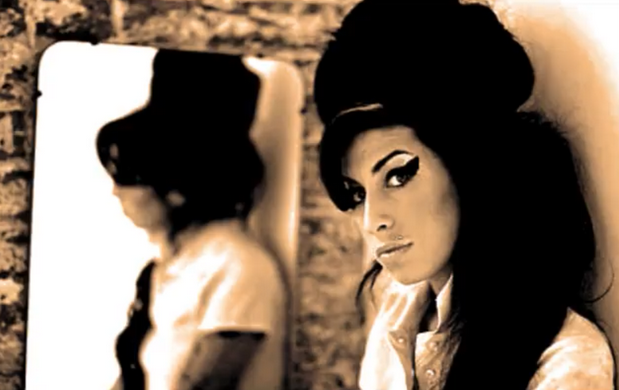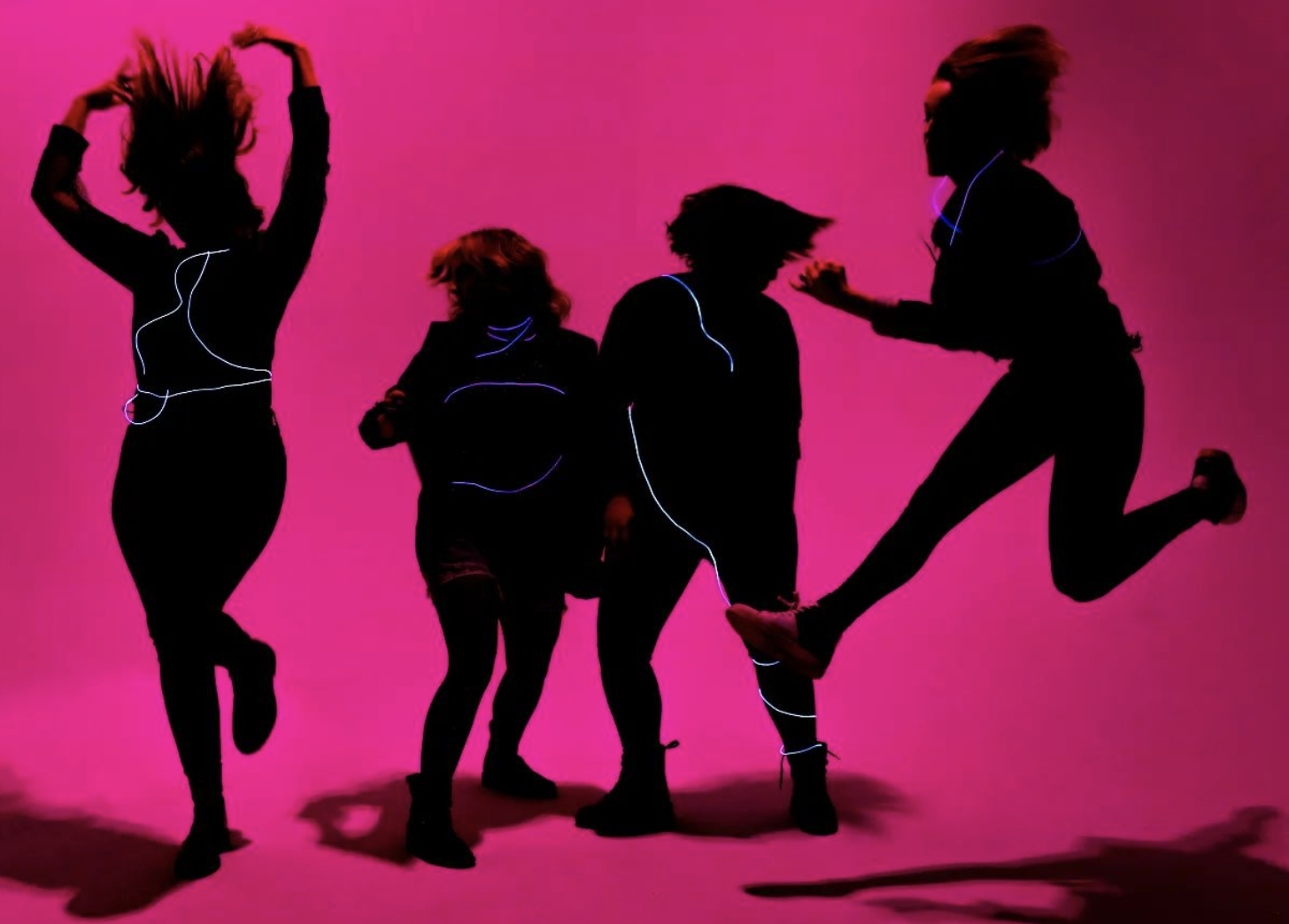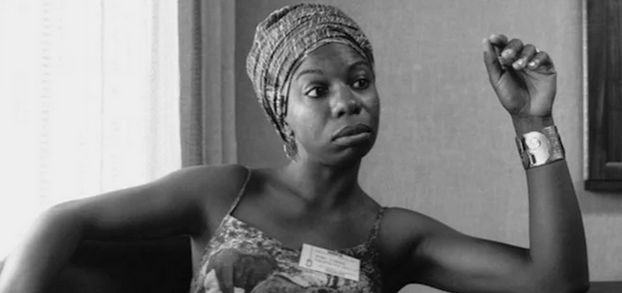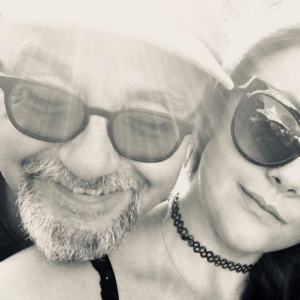KURATED NO. 257
A TRIBUTE
D’Angelo: A Collection

CONTENTS
- PLAYLIST
D’Angelo: A Collection – 35 songs on YouTube and Spotify - VIDEOS
The Charade and Really Love on Saturday Night Live Feb. 1, 2015
Untitled (How Does It Feel) – a controversial video featuring D’Angelo that ended up being a mixed blessing - LIVE RECORDING
Live At The Jazz Cafe, London, 1995 (56 mins) - TRACKLIST below

D’Angelo circa late 90s. (photo from The Atlantic)
ONE OF THE BEST
In 3 albums over 20 years D’Angelo left an indelible mark
While he chafed at the label, music innovator D’Angelo is known as the man behind Neo-soul who changed Black music. The genre draws on soul, funk, R&B and hip-hop. But he refused the definition coined by a former manager. “I never claimed I do Neo-soul,” D’Angelo said in a 2014 interview. “When I first came out I used to always say, ‘I do Black music. I make Black music.”
And that he did. His immaculate, groundbreaking masterpieces mined Black genres in a new way. His 1995 debut album Brown Sugar blended R&B with subtle hip-hop cadences creating music that felt vintage and sounded current. In so doing he was hailed as the artist who transformed the sound of soul and R&B. However he dismissed the Neo-soul term as a marketing pitch: “… any time you put a name on something you kind of … just put it in a box.”
In the wake of his death earlier this month tributes from colleagues and critics were generous and many. Questlove, a close collaborator and friend said, “I consider him a genius beyond words. At the same time, I say to myself: how can I scream someone’s genius if they hardly have any work to show for it? Then again, the last work he did was so powerful that it’s lasted 10 years.”
Just 51 when he died from pancreatic cancer on October 14, the revered musician’s impact is unquestioned. His diverse body of work delivered three distinct albums over 20 years – Brown Sugar, Voodoo and Black Messiah. They share the smoothest love songs imaginable alongside politically charged indictments against police brutality and systemic Black racism that he addressed in his final album. A through line in the work was his voice – sometimes deep, sometimes falsetto – combined with superior songwriting and meticulous attention to arrangements.
In the beginning
D’Angelo’s talent showed up early. Born Michael Eugene Archer in 1974, his father was a Pentecostal preacher who steeped his son in the church music of the family’s Richmond, Virginia home. He was playing piano at at age three and – as a teenager – performed in the hip-hop group I.D.U. (Intelligent, Deadly But Unique). His first big hit was a 1994 co-write with his brother Luther, U Will Know, for R&B supergroup Black Men United which featured singers like R Kelly, Boyz II Men, Usher and others.

Brown Sugar (1995), Voodoo (2000) and Black Messiah (2014)
Three albums and a conflicted journey
Not many artists rise to D’Angelo’s popularity and stature. While his output was small his prodigious musical talent saw him conjure a unique musical amalgam from Black musical sources that continue to resonate with a broad audience.
At the same time his personal life and fame made for a conflicted journey. There was a five-year gap between the first two albums. After Brown Sugar he became disenchanted with the music industry, struggled with writer’s block and kept a low profile. After the chart-topping success of 2000’s VooDoo he withdrew from the public eye again. There was an ill-advised controversial video. His alcoholism in the early 2000s affected personal relationships and, as a result, his record label cancelled funding for a third album. He was admitted to rehab for a while after being arrested for drug possession and a DUI in 2005. He was having difficulty composing new solo work and chose to collaborate with with musicians like Snoop Dog, Common and Q-Tip. He launched a small tour in 2012. But it wasn’t until 2014 when he released new work – his third, and final album Black Messiah.
“He was an enigma who defined a musical era, a recluse who battled his own demons, a runner who — in the tradition of his forefathers — sought a modicum of liberation for himself and his people,” the Atlantic magazine wrote. “At just 51 years old, D’Angelo joined the ranks of many Black luminaries who shone brightly but not long.”

D’Angelo circa 2000 (Rob Verhorst via Redferns/Getty Images)
BROWN SUGAR (1995)
Charting a hit with U Will Know was D’Angelo’s big break and he started work on his own project. Inspired by Prince’s singular approach, Brown Sugar was largely a solo effort. D’Angelo wrote the music and produced the demos in his Richmond bedroom. He sang all the vocals – highlighting his sweet falsetto on some tracks – while displaying his multi-instrumental chops.
The album title is a double entendre for his love of marijuana and Black women. The lyrics emphasize love and romance while the album’s warm, organic sound was an abrupt departure from 90s R&B and drew appreciative audiences.
“It’s easy to forget how radical Brown Sugar was upon its release in 1995,” Marcus J. Moore wrote in Pitchfork two weeks ago. “Radio R&B sounded slick with drum machines tuned to perfection. The singers themselves were adorned in silk suits or white linen, singing on beaches or in mansions somewhere. Then here comes D’Angelo with his straight-back cornrows and baggy jeans, singing about the pleasures of weed through a honeyed voice, his timbre somewhat rough as if this 21-year-old kid had lived a lifetime.”
The disc entered Billboard’s R&B list at Number 6 featuring hits Lady, Brown Sugar and Cruisin’. It stayed on the charts for more than a year and earned four Grammy nominations. Music critics hailed it as pivotal.
VOODOO (2000)
“We all learned a lot working on Voodoo,” D’Angelo told music columnist and author Nelson George in a lengthy 2014 interview. “That was such a great time. I’m kind of a first take dude. The first time, cut that mic on, and the spirit is there, and what comes on the mic… Even if I’m mumbling, I like to keep a lot of that initial thing that comes out. Because that’s the spirit.”
NME magazine called the album a “culture-quake”, a record that “was introspective, philosophical and experimentally groove-based, incorporating vintage vibes, ambient tones and improvisational jazz structures into D’Angelo’s already unique sound.”
Voodoo’s tunes were looser with more edge than the structured pieces on Brown Sugar. Assembling a group of well-known experimental Black artists – the Soulquarians active in the late 90s and early 2000s – the album delivered a jamming, spontaneous funk feel with stripped down sound. The enthusiastic players included Questlove, singer-songwriter Erykah Badu, and rappers Mos Def and Common.
The album rocketed to Number 1 on the Billboard 200 and the Top R&B/Hip-Hop Albums chart. Voodoo won two trophies at the 43rd Grammy Awards – Best R&B Album and Best Male R&B Vocal Performance plus a nomination for Best R&B Song.
Part of Voodoo’s promotion for the album was a controversial music video for Untitled (How Does It Feel) which proved to be a mixed blessing. It featured a sweat-sheened, muscular D’Angelo front and centre singing the lyrics solo and framed to suggest he was naked. The video has 39 million views on YouTube and contributed to the album’s sales. But D’Angelo became uncomfortable being seen as a sex symbol. His former manager said she and the singer “were both disappointed because, to this day, in the general populace’s memory, he’s the naked dude.”
BLACK MESSIAH (2014)
After his lengthy recording pause a wisened and more skeptical D’Angelo delivered his last album. In the ensuing years he’d learned guitar and turned his attention to national unrest in the US and the systemic racism against American Blacks. The album’s opening three songs are bold, brash and noisy featuring crunchy guitar play and driving drum beats. His backing band The Vanguard was a feisty group in sync with D’Angelo’s protest stance.
The sounds are dense and the language political. In the Charade he sings:
Crawling through a systematic maze to demise
Pain in our eyes
Strain of drowning, wading through the lies
Degradation so loud that you can’t hear the sound of our cries
… followed by the chorus:
All we wanted was a chance to talk
by D’Angelo, Kendra Foster & ?uestlove.
’Stead we only got outlined in chalk
Feet have bled a million miles we’ve walked
Revealing at the end of the day, the charade
In the album’s liner notes, D’Angelo writes “Black Messiah is about finding something to hang onto in dire times, soldiering through the infuriating insanity of oppression with a support system in tow. It’s about people rising up in Ferguson and in Egypt and in Occupy Wall Street and in every place where a community has had enough and decides to make change happen. Black Messiah is not one man. It’s a feeling that, collectively, we are all that leader.”
The album’s track listing is disparate both musically and lyrically. Following the heavy sounds in the opening trio of tunes most of the following nine tracks are identifiably D’Angelo including some smooth and carnal love songs, a wistful wish for the good old days, a reference to carbon pollution and a prayer for personal redemption and peace.
Black Messiah was seen as a significant and welcome comeback from the reclusive artist. The album won two Grammy Awards: one for Best R&B Album and another for Best R&B Song for Really Love. The album was also nominated for Record of the Year.
While D’Angelo raised hopes of a follow up album he only recorded two more tracks – Unshaken for a video series with Daniel Lanois and I Want You Forever with Jay-Z and Jeymes Samuel for a film soundtrack. He also made made one notable stage appearance in 2021 with a solo show called D’Angelo Vs Friends at The Apollo.
About the playlist
The 35 songs on this Kurated playlist are drawn mainly from D’Angelo’s four albums – his three original recordings plus a spirited fourth collection, Live At The Jazz Café, London 1995, which features him and the band playing mostly songs from Brown Sugar.
D’Angelo was an excellent collaborator and played with a wide circle of singers and musicians including Questlove, Method Man, Redman, Lauryn Hill, Erykah Badu, BB King and Daniel Lanois.
Nine songs worth noting on the collaborators list include:
• U Will Know by BMU – Black Men United. D’Angelo and his brother wrote this hit for BMU whose members included R Kelly, Boyz II Men, Usher and others. The song essentially helped D’Angelo start his career.
• Everyday by Angie Stone – the song was written by Stone and D’Angelo in 1997 the same year they had child together. She performed as a back up singer with D’Angelo while touring for Brown Sugar. Stone died in a car accident in March of 2025.
• Unshaken – was co-written by D’Angelo, Daniel Lanois and Rocco DeLuca for a video game called Red Dead Redemption 2. D’Angelo was big gaming fan and approached Rock Star, the company developing the game asking if he could try out the game during its development. Thanks to his enthusiasm Rockstar’s music team invited him to write the music.
• Nothing Even Matters by Lauryn Hill – D’Angelo was invited to make a guest appearance on the song which was one of the most popular from Hill’s debut solo album 1998’s The Miseducation of Lauryn Hill.
• Your Precious Love with Erykah Badu – the song was a hit for Motown’s Marvin Gaye and Tammi Terrell in 1967. A version by D’Angelo and Erykah Badu was released on the High School High soundtrack album in 1996, as well as featured on the 1999 tribute album Marvin Is 60.
• I’ll Stay with RH Factor – RH Factor was the late Roy Hargrove’s Band. Hargrave produced and aranged the song while D’Angelo’s vocals and keyboard work provided the emotional depth and rhythmic foundation for the cover. It was nominated for a Grammy Award in 2003.
• Ain’t Nobody Home by BB King and D’Angelo – the song is from King’s 35th album called Deuces Wild. Each of its 17 songs had a well known singer duet with King.
• Tell Me with Slum Village – a duet with the Detroit-based hip-hop band in 2009.

01 November 2025
Track List








